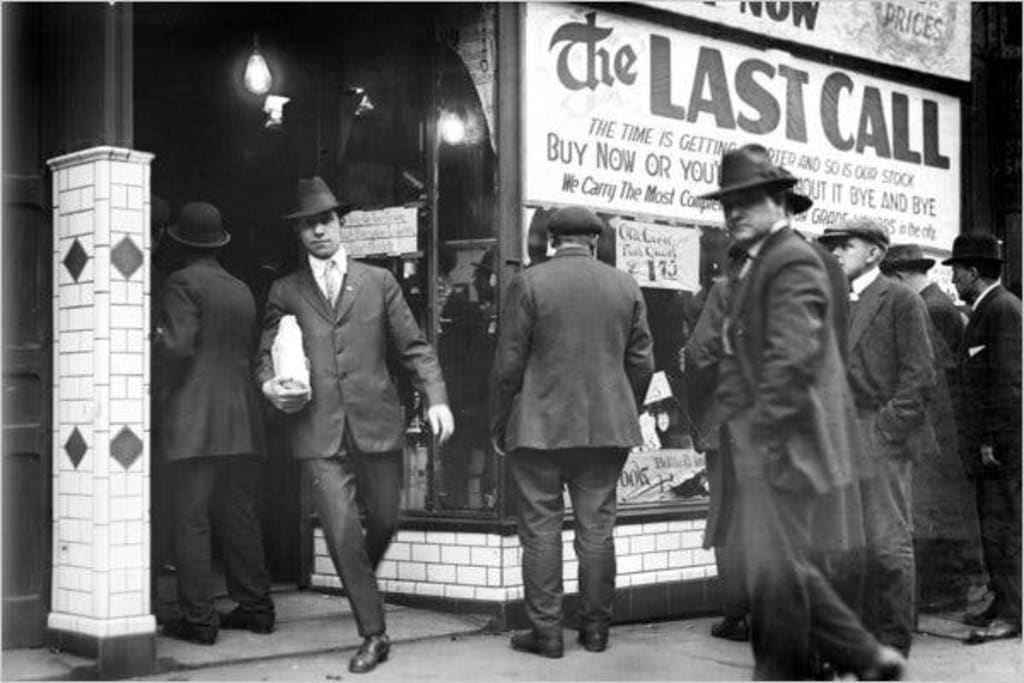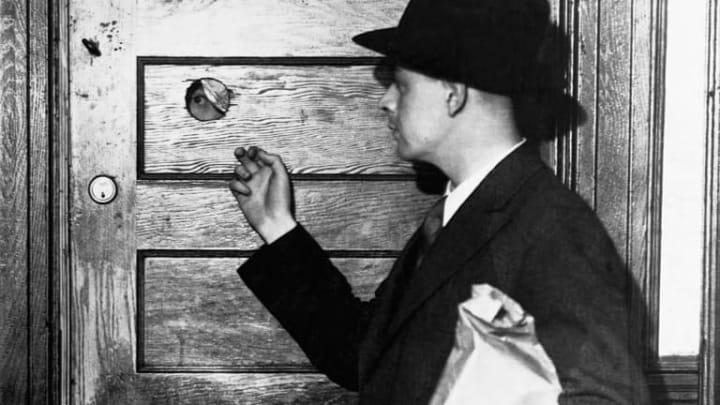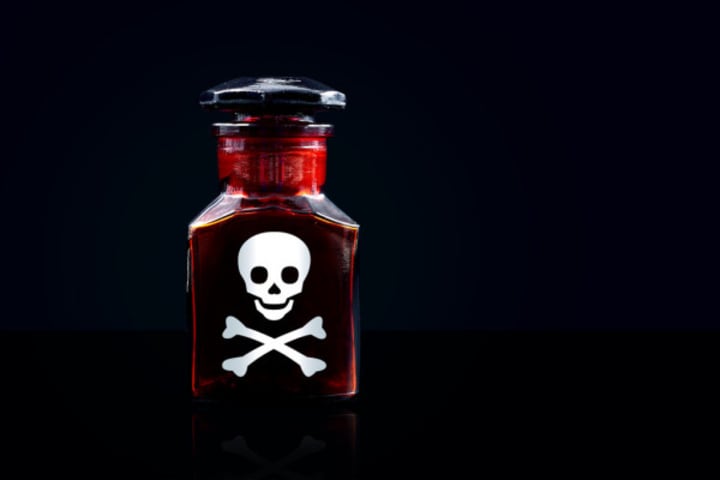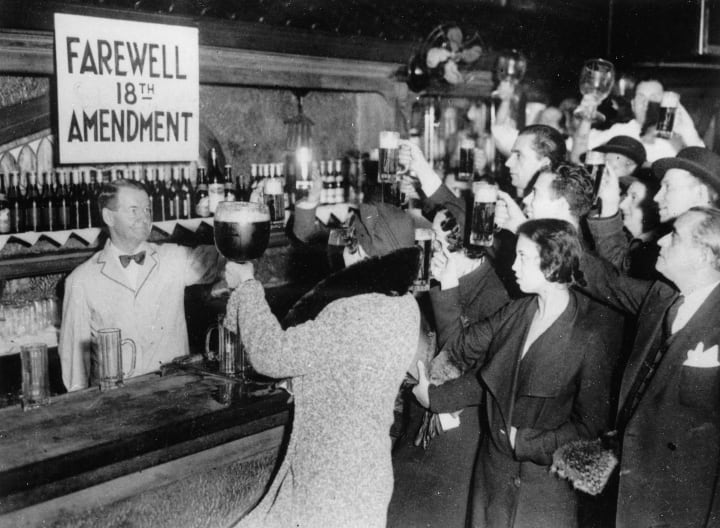
Ronald Reagan once said, "The nine most terrifying words in the English language are: I'm from the Government, and I'm here to help." There's definitely a mistrust between our citizenry and those passing down laws from the highest echelons of government. What Washington D.C. deems best for the Country, often times presents more problems than blessings . That being the case, it makes it difficult to trust the powers that be. Take for instance that time the United States Government ordered the poisoning of industrial alcohols to thwart the efforts of bootleggers during Prohibition.
The 18th Amendment to the U.S. Constitution banned the manufacture, transportation and sale of intoxicating liquors. This Amendment ushered in an era of American history called Prohibition. Because of alcohol's popularity, government authorities found this law difficult to enforce. According to History. com,

The increase of the illegal production and sale of liquor (known as “bootlegging”), the proliferation of speakeasies (illegal drinking spots) and the accompanying rise in gang violence and other crimes led to waning support for Prohibition by the end of the 1920s.
To counter the illegal activity, the Government enacted the "chemist's war of Prohibition." To make drinking spirits, bootleggers often stole industrial alcohols. The government decided a means of stopping the consumption of alcohol would be to poison the ingredients most often utilized in the production of illegal liquors. The aim of the Government was to scare people into giving up illicit drinking. For those determined to drink, they ignored the potential dangers of drinking and many paid the ultimate price.

“The government knows it is not stopping drinking by putting poison in alcohol,” New York City medical examiner Charles Norris said at a hastily organized press conference. “[Y]et it continues its poisoning processes, heedless of the fact that people determined to drink are daily absorbing that poison. Knowing this to be true, the United States government must be charged with the moral responsibility for the deaths that poisoned liquor causes, although it cannot be held legally responsible.”
Although the citizens of America knew about the poisons, many addicted to liquor continued to drink. On Christmas Eve, in 1926, party-goers raised toasts to the holiday season and within two days, thirty one people perished. During Prohibition, doctors routinely saw patients suffering from alcohol poisoning. Initially, it was because of metals and impurities bleeding into the alcohol from the stills hidden across the Country. This would be considered unintentional poisoning. Conversely, though the government warned Americans of the toxins added to the industrial alcohols, the poisoning of those addicted to strong drink was an intentional act.
“Only one possessing the instincts of a wild beast would desire to kill or make blind the man who takes a drink of liquor, even if he purchased it from one violating the Prohibition statutes,” proclaimed Sen. James Reed of Missouri.

I am a teetotaler.
However, I agree with Senator Reed. Thankfully, upon the adoption of the 21st Amendment, the "Chemist's War" ended. Sure, alcohol contributes to many if not most of society's ills, but for the government to take the extraordinary steps to poison people is overreach.
And the Government wonders why we can't trust them...
About the Creator
Bryan R..
Husband. Father. Music and Youth Pastor. I enjoy writing as a hobby.






Comments
There are no comments for this story
Be the first to respond and start the conversation.